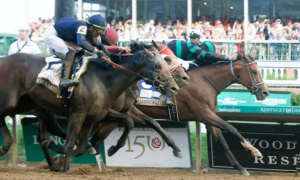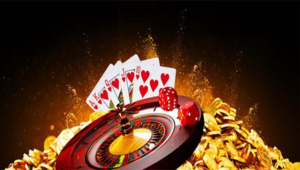The one thing you cannot legally guarantee when you gamble is that you’ll win your next wager. Assuming you play honestly you are taking on some risk. But even when you gamble there are ways you can manage the risks you take and improve the chances you’ll reap some rewards.
- Use a Simple Bucket Budget to Manage Your Money
Effective money management is critical to good gambling habits and while many people do commit themselves to risking no more than a certain amount of money on any gambling excursion, you can create a better budget than that. But no one wants to saddle themselves with a complicated spreadsheet they have to consult on every game. What you want to do is rotate your money as you play. Say for example you visit your local casino with $60. You could go in with 5 $10 bills, a $50 bill and 10 singles, etc. It would be better to settle on how many tickets you want to rotate. Three is a nice modest number, so get three $20 bills. This way you can start out with small wagers and hope to roll them up. If you run through the $20 on your first game move on to a different game. When you get to a point where you have doubled one ticket take your money and divide it so that you always have three tickets (or four if that is how you want to play). As long as you have as many tickets as you started playing with you don’t have to stop and think about your money. A good rule of thumb is to pull any ticket that you have doubled in value. As long as you have at least one ticket with double value or greater you can risk playing down another ticket.
- Look for Smaller Jackpots
Whether you are playing the slots, keno, or roulette you will see the temptation to play a game that promises a crazy payoff. Always remember that the money for those payoffs comes from the players. So if you are playing the slots, pick the game that pays 4,000 max credits instead of the game that pays 10,000 max credits. Your chances of winning are better with the smaller payoffs. This is due to a low variance in the game design. If you ignore all warnings from experienced gamblers to play keno, go for a small number of picks. The safest range of picks is 3 to 5. You don’t risk as much money because you’re more likely to win something.
- Make Smaller Bets
Some gambling advice articles suggest you should “go big or go broke”. That is terrible advice. The faster you lose your money the sooner you will be done gambling. If you just want to get out of the casino then leave immediately and save your cash. Otherwise, stretch it out by making small bets. Unless the rules of the game make it more likely that you’ll win by betting more there is no reason to “bet more to win more”. Your chances of winning or losing are the same regardless of whether you bet $1 or $100. But you have more chances to win or lose when you bet $1 than when you bet $100.
If the prizes are proportionally the same regardless of the size of the bet then you gain nothing by betting more. You’re not just multiplying your wins you’re also multiplying your losses when make larger wagers. Some people sneer at the idea of playing small wagers. Ignore them. If they don’t do the math and see that they can stay in the game longer with small bets that is their mistake. You might win $1000 with a $5 bet. That is always true. And if you played a $1 bet and only won $200 you may feel like you cheated yourself by not making that larger bet. Don’t do this to yourself. What you have to think about is how many more wagers you can make with your current bankroll, assuming you never win until the last wager. The more wagers you make the more times you should win.
- Play the Short Odds, Not the Long Odds
It may not be as much fun to win $20 as to win $200 but the short odds tell you who most people favour in a game. When enough experienced bettors are favouring one competitor over another, that’s a signal you’re not likely to win on the long odds. Yes, there is always that occasional event where something unexpected happens. It wouldn’t be gambling if we were never surprised. Conservative betting may produce modest wins but it produces more wins than aggressive betting, especially if you don’t like doing the research. The same principle holds true in table games and slot games. In blackjack, for example, experienced players don’t like to be dealt a 15 or 16 in their hand. The chances of winning are less than if they are dealt an 18. And you can always hit on an 11 or less.
- Don’t Bet on the House Edge
Most gambling experts talk about “the house edge” or how much the casino expects to earn from a game over time. This is a popular concept to talk about because it’s easy to explain and understand. The idea that the casino only rakes in a 1-10% of all player wagers makes it sound like you are going to keep at least 90% of your money. But the truth is that most people lose on a wager. The low house edge doesn’t mean the dealer won’t get a natural in blackjack, that the roulette wheel will land on your number, or that the slot game will hit a jackpot on your next spin. The house edge means nothing on any individual wager. House edge only applies to the long-term play on the game. And the same is true of “theoretical return to player”, which the yin to the “house edge” yang. If the house edge is 5% then the theoretical return to player is 95%. While that seems like a great ratio it is only relevant to a large number of wagers made over a long period of time measured in months or years. So why do experts tell you to favour the games with the lowest house edge? They want you to pick games that are less likely to take your money through the basic rules. It’s still your responsibility to play wisely. Although some slot machines have a theoretical return to player that approaches the RTP of blackjack and baccarat most slot machines still have worse percentages. Even so, you can quickly lose your money at the blackjack table if you don’t know when you should hit and when you should surrender.
For that matter, if you have a choice between a table that allows surrender and a table that doesn’t allow it, play on the table with the surrender rule. When your cards have a low probability of winning it’s better to get back half your bet than to hope that the dealer will magically go bust. The best surrender rule is the early surrender, where you can fold before the dealer checks for a natural; unfortunately, most casinos now seem to favour the Late Surrender, where the dealer takes your bet if he has a natural. Don’t assume the house edge is working in your favour. It’s working in the house’s favour. You still have to make good choices.
- Stay with Pass or Don’t Pass in Craps
You can enhance these basic bets by betting on the odds but if you don’t understand what all the betting options are stick to the simple bets. In any gambling game the more complicated the betting rules the more likely you won’t do so well. Those rules are there to give the house an advantage. A wagering option may only exist because the casino knows someone will try it despite the low chances of winning. The higher the promise of payback the less likely you will win. The simpler bets work the same way for everyone.
- Only Play Outside Bets in Roulette
There is a romantic notion that if you wait long enough your number will come in and then you’ll get your money back. This idea comes from too many people playing roulette the wrong way. The odds on a single number bet are 35 to 1. That’s a nice payoff but the chances of guessing a single number are worse (either 1 in 37 on European style tables or 1 in 38 on American style tables). Casinos don’t like to offer wagers where the odds (pay off) equal your probabilistic chances of winning. They want the odds to pay less. That is how they lock in the “house edge”. Outside bets in roulette pay less than inside bets but their chances of paying anything are much, much better. The closer your probabilistic chance of winning gets to 50% the more fair the game becomes to you. You’ll find that people have different opinions on where you should place your outside bets but as long as you keep your bets modest you can try different positions and form your own opinions. Your money will last longer this way.









